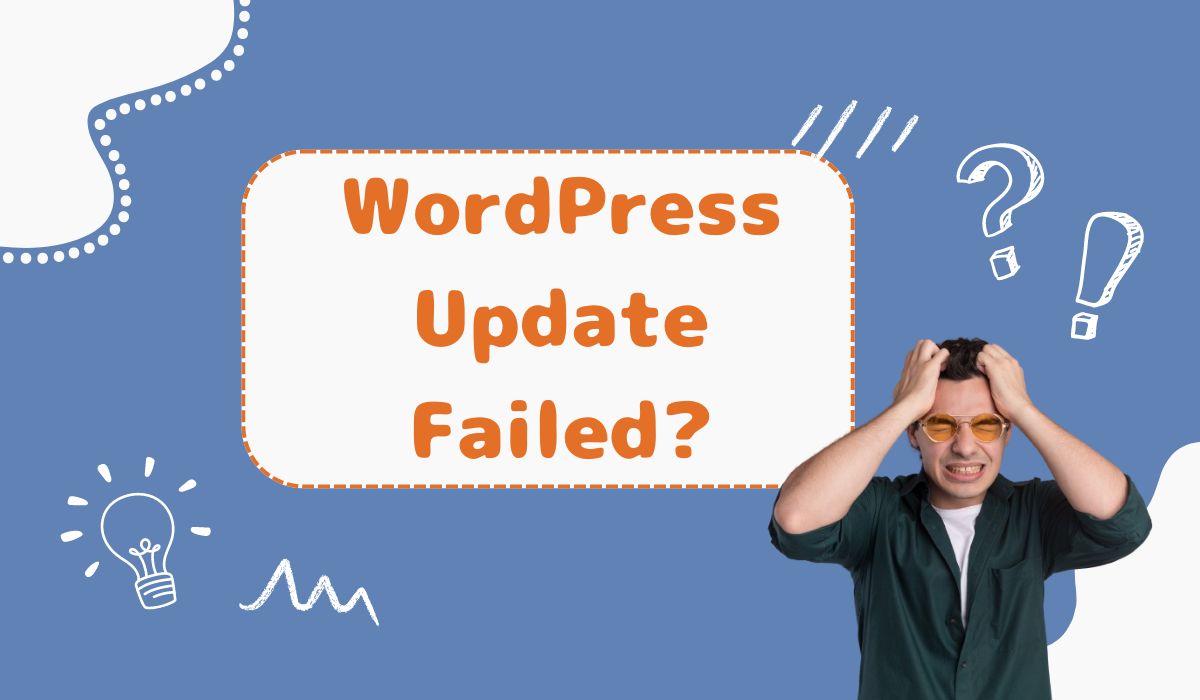Keeping your WordPress site up to date is crucial for maintaining its security, performance, and access to the latest features and improvements. Regular updates help protect your site from vulnerabilities, ensure compatibility with new plugins and themes, and enhance overall functionality. However, encountering a “WordPress update failed” message can be frustrating. Understanding why WordPress update errors occur and how to resolve them can help you get your site back on track quickly. In this blog, we’ll explore the most common WordPress update issues and provide step-by-step solutions to fix them.
1. Insufficient Server Resources
One of the most common causes of “WordPress update failed” errors is insufficient server resources. Updates require adequate memory, CPU, and storage space. If your hosting environment lacks these resources, the update process may time out or fail.
Solution:
- Upgrade Your Hosting Plan: Ensure your hosting plan provides enough resources for updates.
- Increase PHP Memory Limit: Add the following line to your
wp-config.phpfile: 
- Check Disk Space: Ensure your server’s disk space is sufficient before running updates.
2. Conflicts with Themes or Plugins
Themes and plugins are essential for customizing your WordPress site, but they can cause “WordPress update failed” issues. Outdated or poorly coded themes and plugins might not be compatible with the latest WordPress version, leading to update errors.
Solution:
- Backup Your Site: Always create a full backup before updating WordPress.
- Update Plugins and Themes: Ensure all plugins and themes are up to date before starting the WordPress update.
- Disable Conflicting Plugins: If you encounter a “WordPress update failed” message, deactivate all plugins and try the update again. Reactivate them one by one to identify the conflicting plugin.
3. File Permission Issues
Incorrect file permissions can prevent WordPress from writing new files, causing update errors.
Solution:
- Use an FTP Client: Check and set your file permissions using an FTP client.
- Recommended Permissions:
- Folders: 755
- Files: 644
- Set Permissions: Use the following commands in your FTP client:
find /path/to/your/wordpress/ -type d -exec chmod 755 {} \;find /path/to/your/wordpress/ -type f -exec chmod 644 {} \;
4. Incomplete or Corrupted Update Files
If a WordPress update is interrupted, it might result in incomplete or corrupted files. This can lead to update issues and a broken site.
Solution:
- Manual Update: If the automatic update fails, perform a manual update. Download the latest version of WordPress from wordpress.org and upload the files via FTP, except for the
wp-contentfolder andwp-config.phpfile. - Restore from Backup: If manual updates don’t resolve the issue, restore your site from a backup and try the update again.
5. Outdated PHP Version
Running an outdated PHP version can lead to compatibility issues and “WordPress update failed” errors. WordPress regularly updates its PHP requirements to improve security and performance.
Solution:
- Check PHP Version: Use your hosting control panel or a plugin like “Display PHP Version” to check your PHP version.
- Update PHP: Update your PHP version via your hosting provider’s control panel or contact their support for assistance.
Conclusion
Encountering a “WordPress update failed” message can be daunting, but with the right approach, these WordPress update errors are usually easy to fix. Regular maintenance, such as keeping themes and plugins up to date, ensuring correct file permissions, and having sufficient server resources, can prevent many WordPress update issues. Always keep a recent backup of your site to minimize risks and ensure you can recover quickly if something goes wrong.
By understanding these common problems and solutions, you’ll be better equipped to handle WordPress update failures and keep your site running smoothly.


